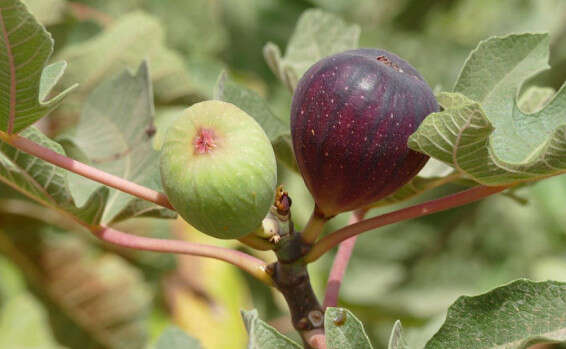Israeli and Spanish researchers collected 42 plants that have been used medicinally since the Bible and have been used to date • Know the biblical antibiotics
Photo: Naama Gatnio
When our ancestors had an abdominal pain with donuts and pancakes, the medicine they took was based on herbs - some of which were known since the Bible. A new study by researchers from Israel and Spain reassembles this list of medicinal plants and reveals that, contrary to what they thought to date, only forty-two species Are defined as "bible medicine plants".
Many studies have dealt with the list of plants that appear in the Bible and there is a widespread controversy among researchers about identifying plant species, with most of the research controversy stemming from poor translation of the Hebrew text, research by botanical researchers, and ignoring Israeli nature and research by Israeli researchers.
"Researchers in the past have suggested no less than 55 to 176 plant species as 'biblical medicine'," explains Prof. Daphne of the Institute of Evolution at the University of Haifa, one of the new list components, "but some were known as herbal medicine in the area, such as haunted The streams or anemone are found, but they have no mention whatsoever - neither in the Bible, nor in the Talmud, nor in Egyptian or Assyrian texts. For others, such as sage, nettle or Nurit, we found no evidence that they were used for medical purposes or that they were ever traded in the country. However, all 42 plants included in the new list have been used medicinally in our area since the Bible days and are used for medical purposes even today. "
"Researchers on the subject suggested up to 176 plant species as" biblical medicine plants. " Prof. Daphne // Photo: Shay Levy
In the present study, Prof. Daphne and Dr. Barbara Beck, an Assurologist from the Institute of Languages and Cultures of the Mediterranean and Near East from the Spanish National Research Council, sought to reassemble the list of medicinal plants in the Bible period based on Prof. Zohar Amar's book "Biblical Plants," The definitions of plants and their medicinal uses in Assyria and Egypt and ethnobotanical and archaic botanical evidence as a corroborating evidence for medicinal uses of the same plant species, such as chemical residues of cinnamon identified in section wine and peat, when, according to ancient Egyptian evidence, cinnamon wine was used for medical purposes.
After a lengthy process, the researchers put together a list of medicinal plants of the Bible period, which includes the four species specifically mentioned in the Bible in medical contexts - fig, moss, tsuri (Gilad), and medicinal duda - as well as a second set of 25 plants mentioned in the Bible In a medical context, but known to be used as medicinal plants according to Assyrian and Egyptian sources: onion, wormwood, frankincense, sniper, cinnamon, myrtle, parsley and pomegranate. In addition, the list includes six species of plants not mentioned in the Bible but indicated as medicinal plants in the Talmudic tradition, they are Egyptian and Mesopotamian, as well as seven plant species not mentioned in the Bible but considered medicinal plants by sources and findings Sea, Mesopotamia or the Talmud.
"All 42 species of plants on the list are used medicinally throughout the Middle East from the Bible to the present day," concludes Prof. Daphne, "and all, without exception, have recently been questioned about their medicinal properties, mechanisms, and chemical content."









